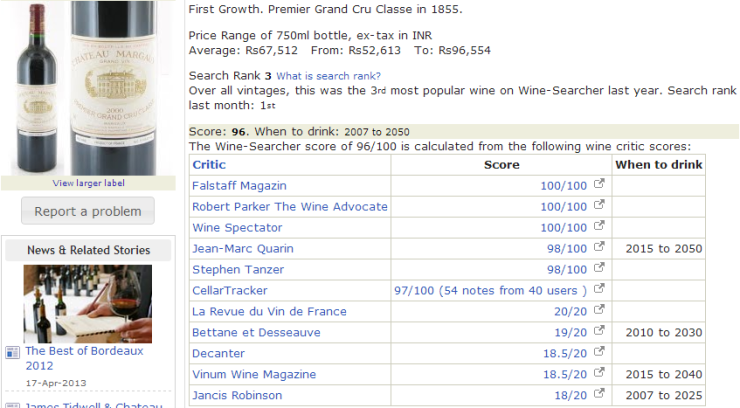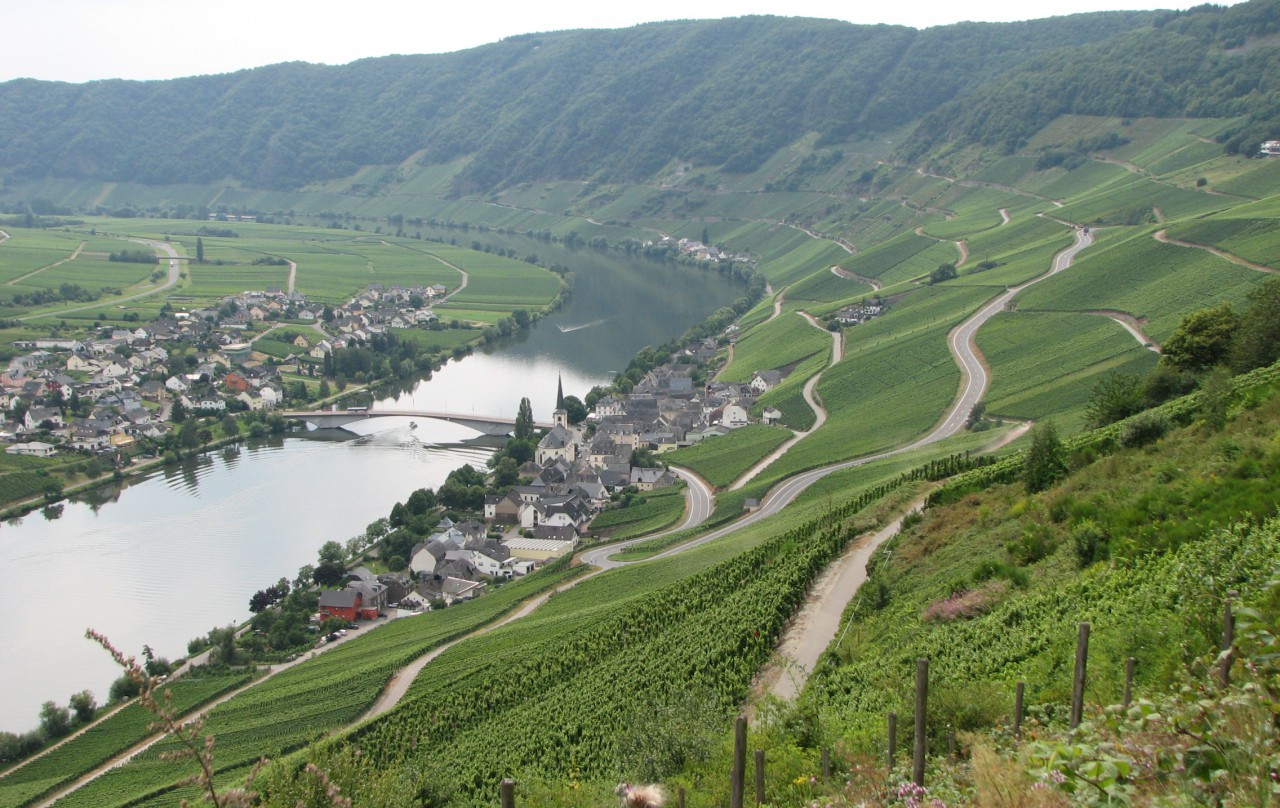This post is in response to an article which appeared in the delWine website a few days ago. While it eruditely laid down the hype and commercial implications of wine ratings, the selective role of Robert Parker as a wine critic emerged as one of the highlights of the piece. This gives us an opportunity to find out what India thinks about the emperor of wine and what does his ratings mean to the Indian wine business?

It is inevitable that whenever wine ratings are discussed, Robert Parker, by default, becomes the focal point, and it is no different in the mentioned article also. No one in the knowledge of the world wine industry can deny the influence of his ratings on the trade. I have personally written and spoken about this at different forums, particularly his expertise and fascination with a few chosen wine regions and their wines (Bordeaux and California happen to be on the top).
To understand Robert Parker’s eminence as a wine critic, one has to study the man’s rise following the pronouncements of 1982 Bordeaux vintage. He was probably the only expert who stuck his neck out in conviction about the quality of this vintage when most others wrote-off the year as average. The fact that it turned out to be one of the best vintages of the century in subsequent tastings, was a vindication of his unquestionable tasting abilities. Incidentally, most who disagreed with him in the beginning had to fall in line with his ratings. This was not only the start of the making of ‘Robert Parker brand’ but also a sign of things to come for the future – the emergence of the ultimate wine critic in true sense, a cult-like figure who possesses a unique ability to affect wine price indices with a single whiff, sip and stroke of his pen.
Like most critics, in addition to a large army of dedicated followers, he has his fair share of detractors too, who feel that ‘Parkerization’ of the wine world has done more harm than good to wine’s cause. While many call him biased and manipulative, there are also those who feel that he is the best thing that could have happened to the modern wine world.
But in spite of Parker’s standing as one of the tallest authorities of wine ratings in rest of the wine world, his influence in affecting drinking habits and the trade in India is almost non-existent. The Parker effect, if any, happens indirectly and outside the country’s boundaries where prices are decided as per his ratings. Inside India, so far there has been no indication of any significant impact of his ratings and reviews.
Why Parker and his ratings are not important in the current Indian wine scene:
1.) We are not a fine wine consuming nation, which happens to be Parker’s strongest domain. The consumption of wines rated 90+ and more by him is limited to a miniscule part of the wine drinking community in this country (price and availability being the two main reasons). Although there is no data to suggest how small this segment might be, it can be safely assumed that it is in the sub-zero percentage, when compared to the overall price brackets.
The same is true when it comes to collectible and investment grade wines.
2.) Overwhelming majority of Indian wine consumers do not know the break-up and significance of the 100-point rating scale. Therefore all the talk about a wine’s placement in the market just based on Robert Parker’s scores does not make any difference. At the most, it is nothing more than a numbers game which only the wine importers like to highlight as strong selling propositions to the top hotels
3.) One of the major areas of Parker’s influence is a category which belongs to the futures trade (En Primeur). Since this segment hardly features in the Indian trade, his ratings of these wines are of little or no consequence to the market in the country
4.) In contrary to suggestions made in the article, even the hospitality industry does not consider it necessary to factor-in Parker or Wine Spectator ratings when selecting wines for their portfolio. Appellation, vintage and brand recognition play much more significant roles in wine selections. Therefore, the reason a 2000 Chateau Petrus ends up in a luxury hotel’s wine list is because the name has a tremendous brand value, belongs to a famous Bordeaux Right Bank appellation (Pomerol) and is from a great vintage. The fact that Parker scored this a perfect 100 is most likely to be a mere coincidence. Now, please don’t suggest that 2000 turned out to be a great vintage because of Parker’s ratings!
Why is this so? Simply because the role of critics in our drinking habits is negligible, to say the least. Ask any sommelier in the country and they will confirm that wines are never sold or selected based on critics’ ratings.
Now coming back to the article in question, and why I was tempted to express my views on the subject. Here are two examples from the article:
Example 1.
I feel, this is just over the top! There was a time when this statement would have been true to a large extent but to suggest that he ‘single-handedly controls the wine rating system’ is unreasonable in today’s context. Thanks to many other equally capable (if not more) critics and credible wine review sites, it is no longer a one man show. Nowadays, many serious wine consumers and fine wine investors refer to multiple reviews and ratings before choosing their wines.
Leading wine websites like Wine-Searcher.com have realized this fact and it is becoming more and more common to find multiple ratings for a particular wine:

Example 2.
The statement above is only partially true. No doubt that such scores are likely to add to the wine’s commercial value, but there are many wines scored 90 and below by Parker which are considered great value for money (better quality to price ratio). Additionally, there are also those which receive better scores later, following a period of bottle-aging. Generally, Parker mentions about the likely evolution of certain lower scoring wines into better products, in his tasting notes.
The rise and influence of the wine critic in conventional wine cultures is best exemplified by Robert Parker. An institution in himself, he has re-written the rules of the game which, many believe, will be the cornerstone of wine critiquing business for a long time to come. But as new wine cultures are born and new market dynamics emerge, Parker’s legacy may not have the same relevance. India is one such market where the man with ‘The Million Dollar Nose’ is yet to make a mark. Only time will tell if the Parker brand is able to mesmerise the Indian wine lover in times to come as it has for decades in other parts of the world.
Cheers,
Niladri


